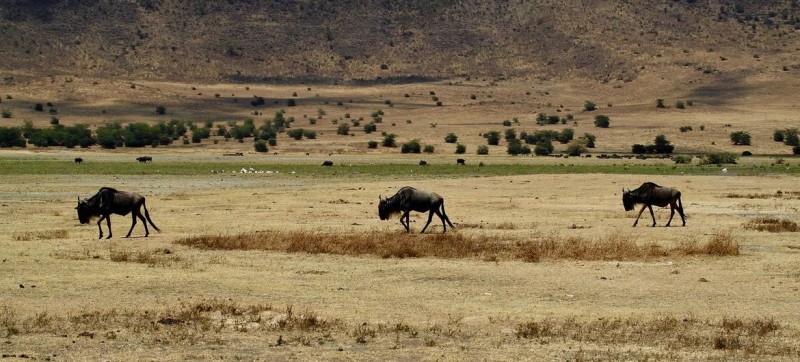Ngorongoro Crater in Arusha, Tanzania. The reported use of live ammunition by security forces in Tanzania, against ethnic Maasai herders, and the death of a police officer, have been condemned by top UN-appointed independent rights experts. The development follows the alleged encroachment on traditional Maasai lands and housing and the potential eviction of 150,000 tribespeople, to make way for a game reserve in the north of the country. In a statement, the group of nine rights experts cited reports that Tanzanian security personnel had fired live bullets and “lobbed tear gas” at Maasai individuals who were guarding the land earmarked for development in Ngorongoro District. The Ngorongoro Conservation Area is one of the best-known sites in East Africa, and home to the spectacular Ngorongoro Crater, a volcanic plain which provides a haven for wildlife, and is the centerpiece of the surrounding UNESCO World Heritage Site, that abuts the Serengeti National Park.Dozens injured
The clash resulted in the death of a police officer and left around 30 people injured, according to the experts, who said that Maasai representatives alleged that there had been “no genuine efforts to consult them” and that they have learned details of the planned eviction from leaked documents.
The press release issued on behalf of the experts by rights office OHCHR, said that on 6 June, following a closed-door meeting, the Arusha Regional Commissioner announced the decision to turn 1,500 square kilometres of 4,000 square kilometres of designated village land comprising the Loliondo Game Controlled Area, into a game reserve.
“The change would imply evictions from Ololosokwan, Oloirien, Kirtalo, and Arash villages, which could displace up to 70,000 Indigenous Maasai”, the statement said.
The decision came despite a 2018 injunction by the East African Court of Justice and the fact that on 22 June, the Court is expected to rule on an a legal challenge to the eviction of the Maasai from their land in this area.
Showdown
Around 700 members of security forces were deployed in the area, where they installed tented camps to start demarcating the land, and on 9 June the police placed markers to delineate the game reserve, but local Maasai people removed them and remained overnight to guard the site.
When security forces returned at daybreak, they started firing live bullets and lobbed teargas at the Maasai, according to the press release from OHCHR.
Another situation has been unfolding in the adjacent Ngorongoro Conservation Area, where authorities have reportedly been advancing plans to evict an estimated 80,000 Maasai from their ancestral lands.
No guarantee
“Under such conditions, it seems impossible to guarantee that the relocation of the Maasai from the area will not amount to forced evictions and arbitrary displacement under international law,” noted the UN experts.
“We are concerned at Tanzania’s plans to displace close to 150,000 Maasai from the Ngorongoro Conservation Area and Loliondo without their free, prior and informed consent, as required under international human rights law and standards.
“This will cause irreparable harm, and could amount to dispossession, forced eviction and arbitrary displacement prohibited under international law”, the UN experts warned.
‘Physical and cultural survival’ on the line
“It could jeopardize the Maasai’s physical and cultural survival in the name of ‘nature conservation’, safari tourism and trophy hunting, ignoring the relationship that the Maasai have traditionally had with their lands, territories and resources and their stewardship role in protecting biodiversity.”
The experts called on the Tanzanian Government to “immediately halt plans for relocation of the people living in Loliondo and the Ngorongoro Conservation Area and begin consultations with the Maasai Indigenous Peoples, including direct contact with the Ngorongoro Pastoral Council, to jointly define current challenges to environmental conservation and best avenues to resolve them, while maintaining a human rights-based approach to conservation”.
They also urged the Tanzanian authorities to “demonstrate transparency” by accepting requests for outside scrutiny, including responding to country visit requests by the UN Special Rapporteur on the Right to Adequate Housing and the UN Special Rapporteur on the Rights of Indigenous Peoples.
Human Rights Council-appointed Special Rapporteurs are part of what are known as the Special Procedures of the Council. They work on a voluntary basis, are not UN staff, and nor do they receive a salary for their investigative work.




Comments are closed.